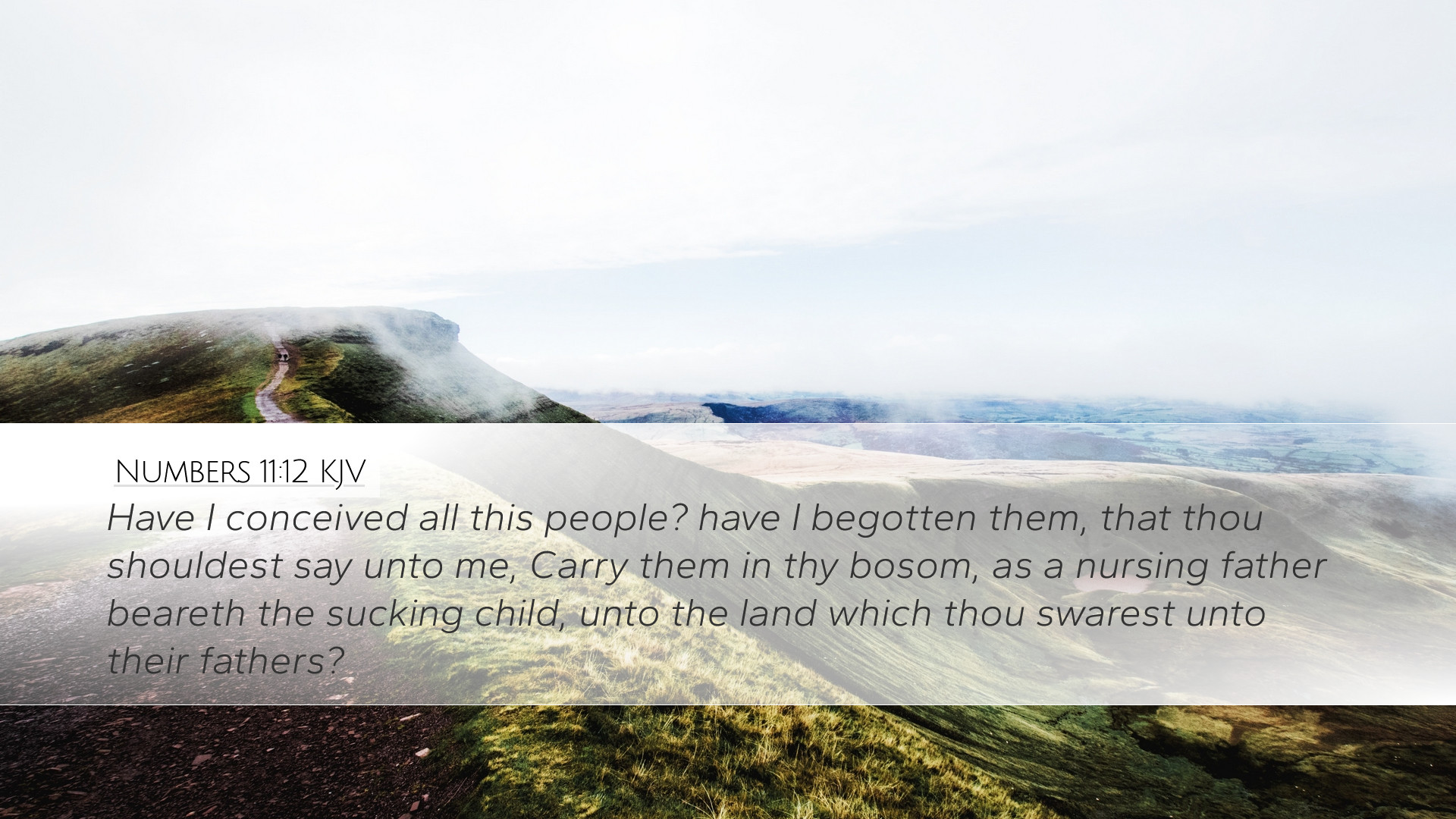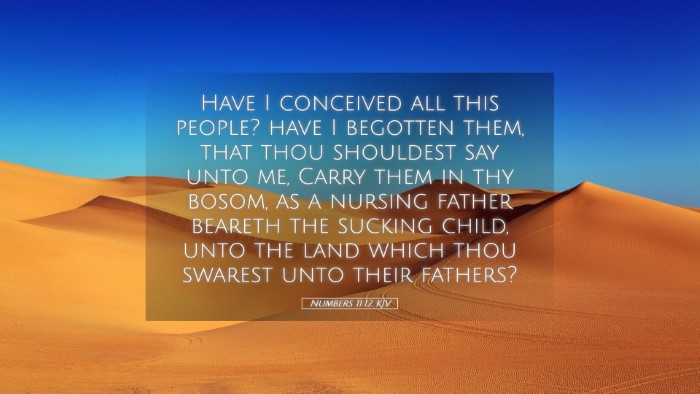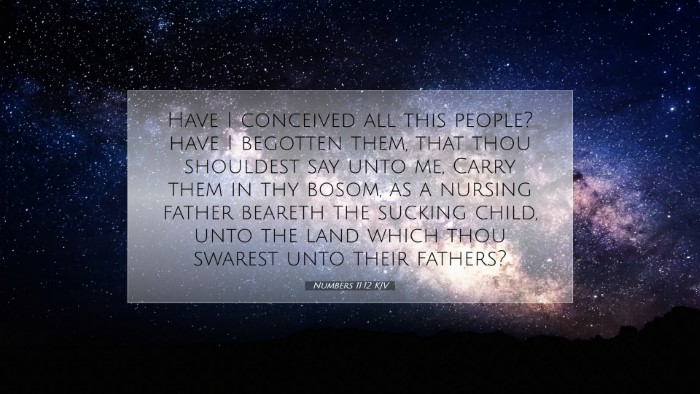Bible Commentary on Numbers 11:12
Text of Numbers 11:12 (ESV): "Did I conceive all this people? Did I give them birth, that you should say to me, ‘Carry them in your bosom, as a nurse carries the nursing child,’ to the land that you swore to give their fathers?"
Introduction
The text in Numbers 11:12 captures a moment of profound frustration expressed by Moses as he faces the burdens of leadership among the Israelites. The sentiment conveyed highlights the challenges and deep emotional toil that comes with such responsibilities. This commentary synthesizes insights from recognized public domain sources, including Matthew Henry, Albert Barnes, and Adam Clarke, to delve into the implications of Moses’ words and to draw applicable lessons for today’s readers.
Contextual Background
To appreciate the depth of Moses’ complaint, it is essential to understand the context within which it arose. The Israelites had recently been liberated from Egypt and were navigating the wilderness, a journey fraught with trials, complaints, and desires for better provisions. As they expressed dissatisfaction over their circumstances, Moses found himself in a position of overwhelming pressure, showcasing the human aspect of spiritual leadership.
Matthew Henry's Insights
Matthew Henry provides a detailed examination of this passage where he emphasizes the weight of Moses' burden. He argues that Moses sees himself as a caretaker of the people: a duty he feels ill-equipped to fulfill. Henry notes that this statement reflects a vital truth in leadership; it brings to light the emotional and spiritual toll leading a wayward people can take on an individual.
Albert Barnes on Moses’ Despair
Albert Barnes expands upon Moses’ lament by pointing out the intensity of his feelings. He notes that Moses is not only expressing exhaustion but also questioning the very nature of his relationship with God’s people. Barnes interprets the metaphor of being a ‘nurse’ to the people as denoting a profound intimacy and responsibility Moses feels, which is compounded by the Israelites' discontent. Moses likens his care for their needs to that of a mother’s affection for her child, highlighting the depth of his emotional investment.
Spiritual and Theological Reflections
This verse reflects a significant theological issue: the nature of divine calling and human limitation. Moses' desperate cry can be seen as a microcosm for the struggles of all leaders called to care for groups, whether in church, community, or family settings. It raises essential questions about the limits of human capacity in the face of divine expectations.
Adam Clarke's Analysis
Adam Clarke offers a unique perspective on this text by analyzing the implications of Moses’ cry. Clarke points out that Moses acknowledges he did not bear the Israelites or bring them into being, suggesting that the burden of their welfare cannot solely rest upon him. His commentary implies a dependence on God to provide for the people, shedding light on the limitations inherent in human leadership and the need for divine support.
The Role of Intercession and Leadership
Moses' words also underscore the theme of intercession in leadership. He speaks from a place of desperation, yet his expression invites leaders to reflect on their role. As spiritual leaders, there is an inherent struggle of bearing the weight of others’ burdens. This mirrors the New Testament call to bear one another’s burdens (Galatians 6:2). Pastors and theologians can reflect on this idea and consider how they are called to act as mediators, not only teaching and guiding but also entrusting to God the care of those they lead.
Lessons for Today’s Readers
- Understanding the Weight of Leadership: Church leaders and educators must recognize the emotional and spiritual burdens they carry. Just as Moses felt overwhelmed, leaders today may also find themselves in positions where their efforts are met with resistance or disappointment.
- The Need for Divine Support: Reflecting on Moses' words invites leaders to lean on God more deeply. The acknowledgment of one’s limitations is a critical step toward seeking God for strength and wisdom.
- Emphasizing Community Support: This passage reminds congregations to support their leaders actively, understanding the burden they shoulder and creating an environment of grace and encouragement.
- Redefining Expectations: The question Moses poses about the nature of his relationship with the Israelites can lead to a re-evaluation of how expectations in leadership are set, both from leaders themselves and from the community.
Conclusion
The cry of Moses in Numbers 11:12 resonates across millennia, calling leaders to acknowledge their human limitations while also encouraging them to depend on God’s provision. As theologians and scholars reflect on these insights, they are invited to seek deeper understandings of leadership dynamics found in Scripture, empowering communities to support one another and fostering a spirit of intercession that aligns with the heart of God.


